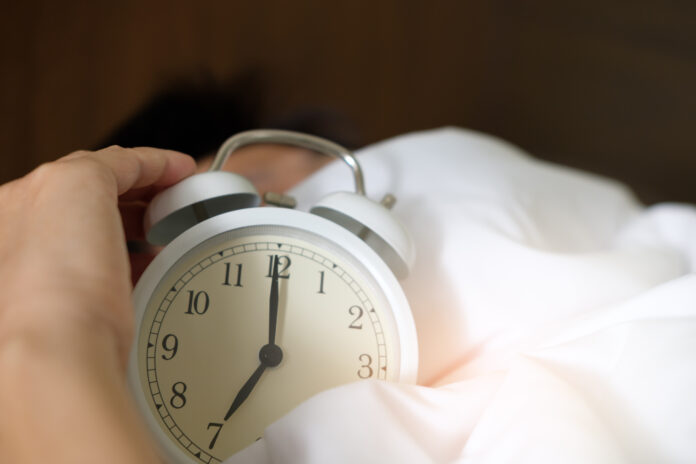Living life with poor quality sleep is very hard, but dealing with the sleep apnea symptoms makes it that much harder to enjoy. Luckily, there are many ways to address sleep apnea and get better rest. Continue reading to learn more about how to deal with this condition.
One way to improve your sleep apnea is to shed excess weight that you are carrying. Being overweight or obese places pressure on your neck, which can compress your windpipe as you sleep. Losing just 25 pounds can make a difference in your symptoms, and losing enough weight can eliminate the disorder altogether.
If you decide to try a CPAP machine, do not give up until at least a few weeks. A lot of sleep apnea patients give up before they really get a chance to get used to their machine. Wait until you are comfortable with sleeping while wearing a mask and you should really notice a difference.
It can be a very serious issue when you have sleep apnea. If you see any signs, go get yourself an opinion right away. With an official diagnosis, you will have to see a sleep specialist and possibly a home based sleep test with a portable monitor to fully assess the condition.
Clear up your nasal passage before heading to bed. If you suffer from sleep apnea and have problems with a “stuffed up” nose, using a nasal spray or device can help clear your nasal airway. This is not a permanent solution, but one you can use when your apnea symptoms are the worst.
Try yourself to sleep on your side. If you fall asleep on your back, gravity can make it easier for your tongue and/or tonsils to fall back into your throat and obstruct your windpipe, causing apnea episodes. While it may be hard a first, as time passes, however, it will start to become second nature to sleep on your side.
Everyone who snores does not have sleep apnea. Conversely, everyone who has sleep apnea does not necessarily snore either. How do you know the difference? The biggest signs are how you feel during the course of a normal day. Snoring does not interfere with the sleep quality the same way that sleep apnea does. With snoring you are less likely to suffer from fatigue during the day.
Being overweight is a common cause of sleep apnea. If you suffer from this condition, losing weight can help you find relief. Talk to your doctor to find some safe and effective ways of dropping a few pounds. Doing so will also benefit you in many other ways as well.
An excellent way to reduce the symptoms of sleep apnea is to prop up your head and body. If you can get your head at least 4 inches off of the mattress or elevate your torso from the waist up, you will reduce your symptoms. Try using a foam wedge or cervical pillow when sleeping to do this.
If you have sleep apnea, and your CPAP does not seem to be working out for you, consider alternate types of machines. You may be a person who needs the air pressure to change throughout the night as you sleep. Your doctor can prescribe a machine that uses different technologies to deliver air, such as an APAP, a BiPAP, or a machine equipped with C-FLEX. Each of these adjusts the pressure up and down as you sleep, which can make it more comfortable and effective for you.
If simple changes in your lifestyle, such as regular sleep hours and losing weight, have not eliminated your sleep apnea episodes, it is time to consult with a sleep specialist. The specific causes of your sleep apnea can be evaluated, and an individual treatment plan can be designed for you.
While it is common sense to avoid some things before sleeping, like caffeine, many people load up their plates and then go to bed. This is not healthy in general and can worsen sleeping issues like apnea. Avoid eating any heavy meals before going to bed and you will find yourself sleeping better.
One quick tip for trying to get a better night’s sleep is to sleep only on your side and not on your back. If you sleep with someone else, ask them to gently roll you over any time they see you on your back. This can help to keep your airflow more controlled.
If you have sleep apnea, do not use sleeping pills. These medications work to relax the throat muscles, which is not what you need to cure sleep apnea. They can also cause a lot of other problems, so it is best to stay away from them. If you have a hard time falling asleep at night, try learning some natural ways to rest your body.
To lessen the severity of your sleep apnea at night, move around more during the day! Studies have shown that prolonged inactivity during the day will cause fluid-shifting and airway narrowing by the end of the day, when you lay back or down. To avoid this complication of sleep apnea, get up and stretch at least once every hour.
Check with your doctor about any medications that you are taking that may be causing your sleep apnea symptoms. Some prescription medications, such as muscle relaxers, may, in fact, promote the collapse of the soft tissue in the back of the throat which can contribute to the symptoms of sleep apnea.
It can be hard enough to stay healthy and get through life without dealing with the added challenge presented by sleep apnea’s negative impact on the quality of sleep. Ideally, you’ve picked up a handy piece of advice or two in the course of reading this article. You may well be able to make some immediate changes in the way you deal with your sleep apnea and start seeing some positive results.



